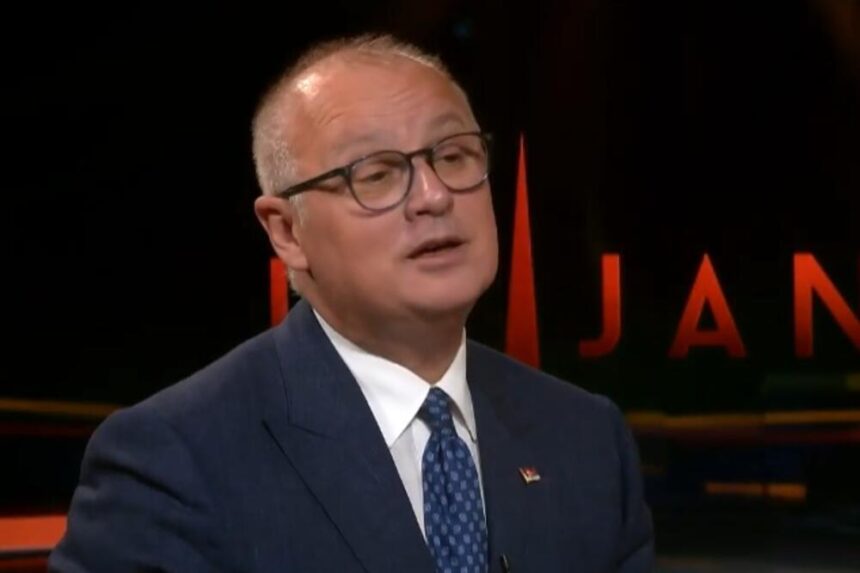Former Serbian Minister of Construction Goran Vesić is set to appear before the Prosecutor’s Office for Organized Crime, marking a significant escalation in the investigation into the deadly Novi Sad railway station canopy collapse, which claimed 16 lives in November last year.
Vesić, who at the time insisted that “responsibility will be determined in the coming days”, is now among 13 suspects facing allegations of severe breaches of public safety and large-scale financial wrongdoing.
Two Parallel Investigations Target High-Level Officials
In addition to the Novi Sad High Public Prosecutor’s Office filing charges against him and 12 other individuals in September, Vesić is now under scrutiny in a separate corruption probe led by the Organized Crime Prosecutor’s Office (TOK) in Belgrade.
According to the August 1 order initiating the investigation, prosecutors suspect Vesić and other former top officials—including ex-minister Tomislav Momirović, former assistant minister Anita Dimoski, acting director of “Serbian Railways Infrastructure” Nebojša Šurlan, and investment manager Slobodanka Katanić—of abuse of office, manipulation of contracts, and enabling massive financial gains for the Chinese consortium CRIC&CCCC.
Over $115 Million in Damage — and Possibly Much More
TOK alleges that through a series of controversial amendments to the commercial contract for the modernization of the Hungary–Serbia railway line, officials enabled contractors to:
- Extract over $1 billion from Serbia’s railway budget
- Claim an additional $64 million for “extra work”, much of it allegedly unjustified
- Bypass public procurement laws, thanks to a “special regime” created through contract annexes
This resulted in over $115 million in direct losses to Serbia’s budget, though investigators believe this may represent only a fraction of the total damage.
“This appears to be only part of the full financial harm,” said retired Appellate Court judge Savo Đurđić.
A System Built on Contract Manipulation
Documents seen by Deutsche Welle reveal that from 2021 to 2024, Vesić and several other officials signed contract annexes that reclassified already-included work as “additional,” enabling the contractor to bill again—at inflated prices.
Former prosecutor Jasmina Paunović emphasized that the roots of the corruption extend further back:
“All of this traces back to the original 2018 commercial contract, signed by then-minister Zorana Mihajlović. That contract opened the door to systematic corruption.”
She argues the responsibility likely reaches the highest structures of Serbia’s government, including:
- The Ministry of Finance
- The Legislative Secretariat
- The Speaker of Parliament
- The Secretary of Government
Signs of Political Interference in the Investigation
Concerns about a deliberate obstruction of justice intensified after police director Dragan Vasiljević removed investigators from TOK’s special task force on September 4.
“This must alarm us,” Đurđić said.
“It indicates open interference by the executive political leadership.”
Former police inspector Predrag Simonović added that the reshuffling in law enforcement and judiciary appears designed to ensure greater political loyalty, warning that:
“It signals to all officials that justice is not equal for everyone.”
TOK’s chief prosecutor Mladen Nenadić has also been subject to intense political pressure, including public accusations from the Serbian president—another troubling indicator of the fragile state of judicial independence in Serbia.
What Comes Next?
Whether the investigation will expose the full extent of corruption behind the Novi Sad tragedy now depends on whether TOK regains its removed investigators and whether state institutions will comply with document requests.
As Đurđić notes:
“The question is not only who signed the contracts, but whether Serbia’s institutions are willing to reveal the entire chain of corruption and unchecked power.”





